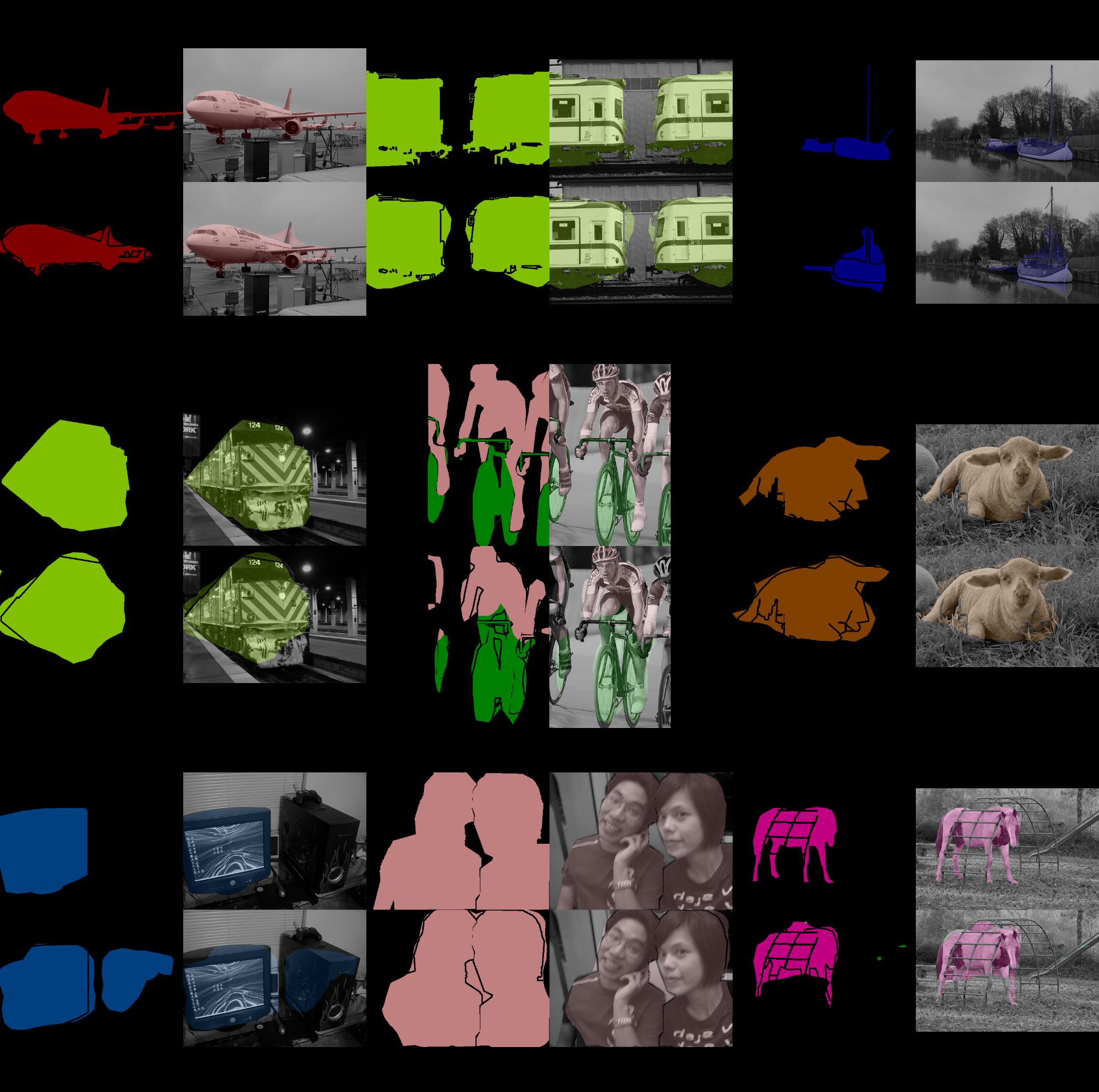Fully Convolutional Networks implemented with PyTorch.
- Support FCN16s and FCN8s.
FCN32s
deconv=Falsetrain=SBDClassSeg(split='train')val=VOC2011(split='seg11val')batch_size=1MomentumSGD(lr=1e-10, momentum=0.99, weight_decay=0.0005)
| epoch | iteration | valid/loss | valid/acc | valid/acc_cls | valid/mean_iu | valid/fwavacc |
|---|---|---|---|---|---|---|
| 9 | 76482 | 59656.847812 | 0.897753 | 0.780288 | 0.628707 | 0.844420 |
PyTorch implementation is faster for static inputs and slower for dynamic ones than Chainer one at test time.
(In the previous performance, Chainer one was much slower, but it was fixed via wkentaro/fcn#90.)
% ./speedtest.py
==> Benchmark: gpu=1, times=1000, dynamic_input=False
==> Testing FCN32s with Chainer
Elapsed time: 48.98 [s / 1000 evals]
Hz: 20.42 [hz]
==> Testing FCN32s with PyTorch
Elapsed time: 45.15 [s / 1000 evals]
Hz: 22.15 [hz]
% ./speedtest.py --dynamic-input
==> Benchmark: gpu=0, times=1000, dynamic_input=True
==> Testing FCN32s with Chainer
Elapsed time: 48.83 [s / 1000 evals]
Hz: 20.48 [hz]
==> Testing FCN32s with PyTorch
Elapsed time: 57.00 [s / 1000 evals]
Hz: 17.55 [hz]
